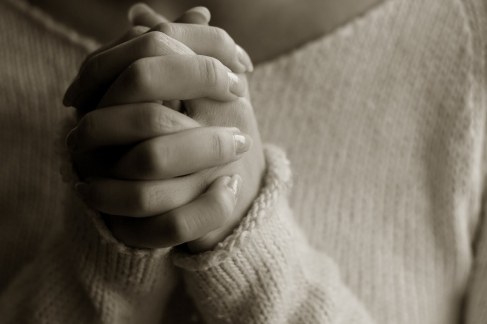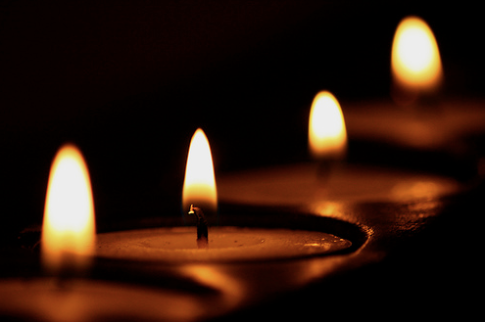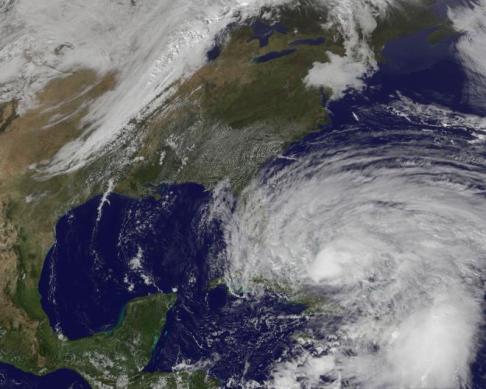In closing out this short series, I want to encourage your thoughts and feed back in the comments below. Also, I would like to put your thoughts on this blog. If you have any thoughts on a topic write it down and we can dialogue over the blog. I hope you enjoyed reading this short series, contributed by a reader. 
Jesus’ Prayer
“My Father, if it is possible, may this cup be taken from me. Yet not as I will, but as you will.”
This is a prayer of suffering, inner conflict, and yet also of willing submission. This is neither just about him, nor just about his relationship with God. What Jesus is struggling with here, I think, is to “love the Lord your God with all your heart and with all your soul and with all your mind and with all your strength” and to “love your neighbors as yourself” (Mark 12:30-31). Practicing both commandments cost him dearly: his life.
In this prayer, we do not see the Jesus who stops the storm, raises the dead, chases demons out, and feeds thousands with a couple loaves of bread. This is the Jesus who had wept when Lazarus died. This is the Jesus who would later say, “Eloi, Eloi, lama sabachthani?” These very last words of Jesus on the cross according to two of the Gospels are not something we’d think the Son of God, who was, is, and will be, would say. No, it sounds like utter despair, helplessness, and doubt: “My God, my God, why have you forsaken me?” He felt forsaken and didn’t know why. Less than 24 hours after his brave prayer, “not as I will, but as you will,” he still questioned the reason for his suffering.
I have prayed to God in similar ways. “Please help me, God, but if this be your will, I submit myself to you,” so I’d pray, only to add later, “But why did this happen to me? Why do you ignore me?”
I often wondered about this teaching of Jesus about prayer: “Whatever you ask for in prayer, believe that you have received it, and it will be yours” (Mark 11:24). Seemingly, it even worked with self-centered prayers of Jabez and Hezekiah, and perhaps with Agur as well. But God did not remove the cup from Jesus.
So why pray? What is it good for? Does it make any difference? Many people say that prayer is conversation between God and us. I highly doubt it. To me, conversation is two-way communication: input, output; sending, receiving. I can talk to a tree all day and perhaps “feel” its response to me, but I won’t call that a conversation. I definitely don’t pray for God’s sake: He already knows what I have to say. I also don’t pray for other people’s sake, or being seen/heard by others (even though many people do seem to pray for that reason). By way of Sherlock Holmsian deduction, I suspect that one prays for one’s sake. This doesn’t necessarily mean being selfish. I can pray for my sake for selfish reasons. I can also pray for my sake for unselfish reasons. Also, being selfish or not doesn’t seem to affect God’s response, as we see in Jabez’ and Hezekiah’s prayers and in Jesus’ prayer.
I think we pray because it leads us to hope and courage. “That’s it?” you might say. “That’s about it,” I say. And it’s a big deal. A huge deal. A hope that the Mighty One of grace and compassion, of love and patience, is hearing us. A hope that the Creator is understanding the sufferings of the created.
Such hope is the flickering light in utter darkness. When the light stops flickering, the alternative is death, either physical or spiritual, or both. I dare say that Jesus sought hope as well in the Garden of Gethsemane when he prayed to the point that “his sweat was like drops of blood falling to the ground” (Luke 22:44). When he said to the sleeping disciples, “The spirit is willing, but the body is weak” (Matt 25:41), I don’t think the statement was directed only to their sleeping. His body was weak, and his spirit suffered, too. Curiously, Luke records, “An angel from heaven appeared to him and strengthened him” (Luke 22:43) while Jesus was praying. How did an angel “strengthen” Jesus? Again, I dare say it was hope through which Jesus was strengthened.
I’m almost certain that every one of those who survived holocaust had prayed on each new day. Not everyone who prayed survived, but those who survived prayed. Speaking of the holocaust, I think the young girl Anne Frank beautifully summed up what hope does:
“As long as this exists,” I thought, “and I may live to see it, this sunshine, the cloudless skies, while this lasts, I cannot be unhappy.” The best remedy for those who are afraid, lonely or unhappy is to go outside, somewhere where they can be quite alone with the heavens, nature, and God. Because only then does one feel that all is as it should be and that God wishes to see people happy, amidst the simple beauty of nature. As long as this exists, and it certainly always will, I know that then there will always be comfort for every sorrow, whatever the circumstances may be.
And this was her prayer. If, as the writer of Hebrews says, faith is “being sure of what we hope for,” Anne was a person of faith. Prayer can help us see, smell, hear, and touch hope, when it seems elusive, fragile, and flickering, because hope, along with grace, love, and compassion, is another name for God, whom we were born to seek.
So, prayer, what is it good for? To me, it is not a means to an end, nor is it a means to “converse” with God. Rather, it is a process through which we find hope, which strengthens us. And in that strength, we will find God. In that strength, we can become courageous to fight evil, whatever form it may take. That process, I believe, leads us to communion with God.
Going back to what Jesus said about prayer, “Whatever you ask for in prayer, believe that you have received it, and it will be yours,” it seems to me that he was talking about the assurance of hope. God may or may not remove the cup from me. I may never even find out why and feel forsaken. But as long as I have the light in sight, albeit dim and flickering at times, I know I’ll be alright and maybe even be able to point that light to someone else to see….






